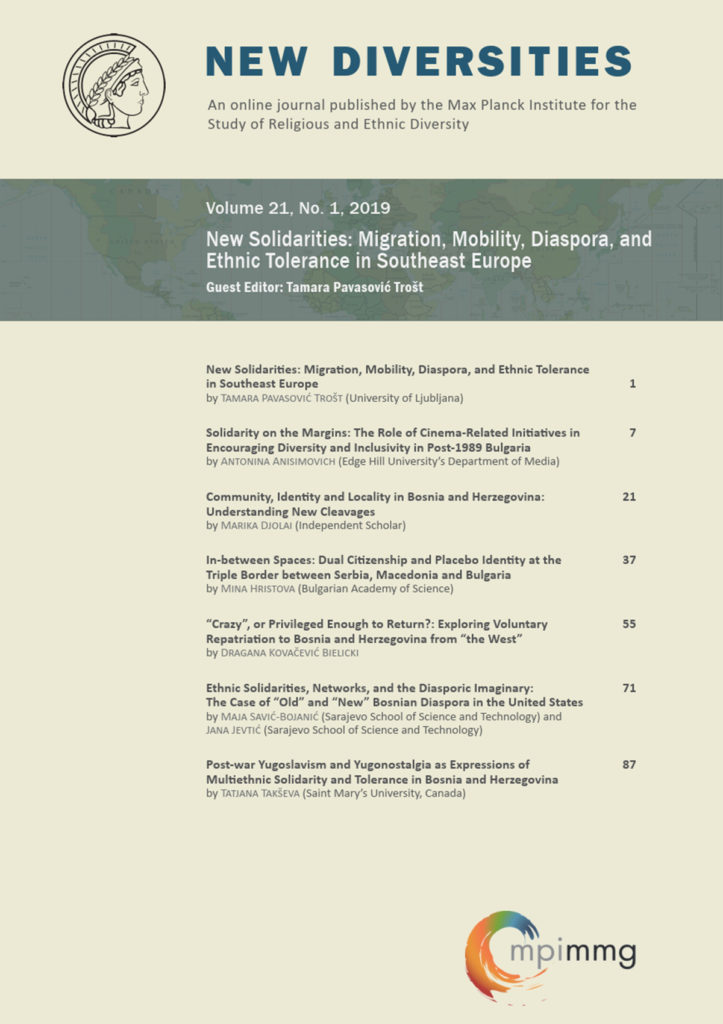Community, Identity and Locality in Bosnia and Herzegovina: Understanding New Cleavages
by Marika Djolai (Independent Scholar)
To cite this article: Djolai, M. (2019). Community, Identity and Locality in Bosnia and Herzegovina: Understanding New Cleavages. New Diversities, 21(1), 21–36. https://doi.org/10.58002/w5jv-e183
The predominant view in the literature on post-war Bosnia and Herzegovina is that the war has mobilized multi-layered discourses of nationhood and permanently transformed people’s identities to ethnic. This view disregards many other identities that people developed through life projects in the past two decades, and tends to simplify otherwise complex social dynamics, particularly at the community level. This includes the influence of migration, mobility, diaspora, and above- and below-ethnic identifications, technologies, educational experiences, consumer/labour markets, gender norms, leisure opportunities and fashions (Mandić and Trošt 2017), producing new identities and cleavages. This paper focuses on geographic community and proposes a concept of identity of place; this is attached to home communities and identity of experience, which are brought about by forced displacement and post-war migration leading to life away from home communities. Drawing on the concepts of translocality and transcommunality, the paper argues that the drivers of cleavages should be sought in the identity of place and strength of commitment and connection with the home community. When the identity of place is weakened and taken over by the identity of experience, the bond and commitment one has to home communities dissipates and results in the cleavage between the permanent residents in the community and migrants. Lastly, the paper draws particular attention to the nuances of new, post-war resident heterogeneity. The study uses data from eighteen months of fieldwork and mixed methods data collection in two small towns, Stolac in Southern Herzegovina and Kotor Varoš in Northern Bosnia, between 2012 and 2013.
Keywords: translocal, transcommunal, identity, cleavages, ethnicity, Bosnia and Herzegovina
New Diversities • Volume 21, No. 1, 2019
New Solidarities: Migration, Mobility, Diaspora, and Ethnic Tolerance in Southeast Europe
Guest Editor: Tamara Pavasović Trošt (University of Ljubljana)
- ISSN-Print 2199-8108
- ISSN-Internet 2199-8116
